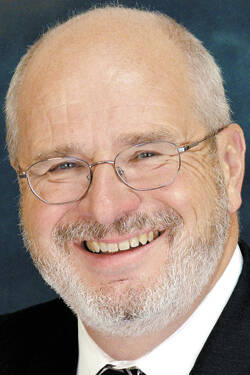In this divided land of ours, I find myself hoping that some smart people will recognize a reality that seems obvious.
It involves leverage.
U.S. Rep. Matt Gaetz, R-Florida, now is an object of fury for much of the GOP caucus in the U.S. House of Representatives. Gaetz’s fellow Republicans in the people’s chamber blame him for taking down former Speaker Kevin McCarthy, R-California, throwing their agenda, such as it is, into disarray and handing momentum and opportunities over to the Democrats.
Some of the GOP caucus’s ire also is focused on their Democratic colleagues, whom Republicans believe should have stepped in to help McCarthy stay in power.
The majority of the GOP caucus is furious because Gaetz and a small band of fellow firebreathers forced the change in leadership. Because the Republican majority in the House is so small, having eight members of the caucus abandon McCarthy was enough to drive him from the speakership and throw the GOP into chaos.
Republicans’ fury at Gaetz blinds them to a potent truth.
They’re not alone in that. Democrats in the U.S. Senate exhibited the same blindness when they were dealing with U.S. Sen. Joe Manchin, D-West Virginia.
In both cases, rage made it impossible for members of the majority to see what was right in front of them.
In a government and political culture split in such an evenly balanced fashion, every faction, no matter how small, has tremendous power. Gaetz, for example, needed to persuade only two to three other members to go along with him—he actually secured more votes than were required—to bring half of the legislative branch of the U.S. government to a screeching halt.
Similarly, Manchin was able to position himself as the swing vote on almost all of President Joe Biden’s agenda to win significant concessions for himself and his state.
Because the margin separating victory from defeat is so narrow, each vote carries disproportionate weight. That gives every legislator in each chamber tremendous clout.
So far, the lawmakers who have recognized and acted on this have been on the margins in one or another.
In the House, the Republican members have allowed the most extreme members to call the shots. That has left the GOP pursuing an agenda that may play well in gerrymandered congressional districts designed to perpetuate rabid right-wingers in political office, but it often alienates voters in swing districts and states.
In the Senate, having to kowtow to Manchin served to undermine the political impact of Biden’s policy victories. It made people at times wonder who actually served as president—the man in the Oval Office or the senator from West Virginia.
In other words, this enormous leverage, so far, has been exerted only by, in the House, the crazy caucus and, in the Senate, a politician driven by parochial concerns and, at times, naked self-interest.
But there is no law of nature saying they are the only ones who can do so.
During this long, bitter and increasingly fevered period of political paralysis, I have wondered when—to use examples specific to Indiana—the Mitch Daniels Republicans and the Evan Bayh Democrats were going to realize that they had more in common with each other than they do with the more partisan and extreme forces now guiding their respective parties.
Even though the Bayh and Daniels tribes start at different points, their goals most often are the same—to claim and serve the center.
It is the center in this country now that lacks a voice.
A small, committed band of moderates and centrists from both parties in each chamber could speak to that abandoned constituency.
Doing so would not have to be an act of altruism. There are both Republicans and Democrats in the House who represent districts won by the other party’s presidential candidates. That should give them some motivation to preach beyond the choir.
The Senate is a different story. Statewide offices are impossible to gerrymander, which in theory should encourage political parties in battleground states to nominate candidates with bipartisan appeal.
But senators still fear primary challenges from candidates more extreme than they are.
The only way to push back is for senators willing to work with others to link arms and, at least temporarily, build a coalition of the middle.
This would strike a blow for sanity.
And it would remind everyone that the center matters, too.
John Krull is director of Franklin College’s Pulliam School of Journalism and publisher of TheStatehouseFile.com, a news website powered by Franklin College journalism students. The views expressed are those of the author only and should not be attributed to Franklin College. Send comments to [email protected].





